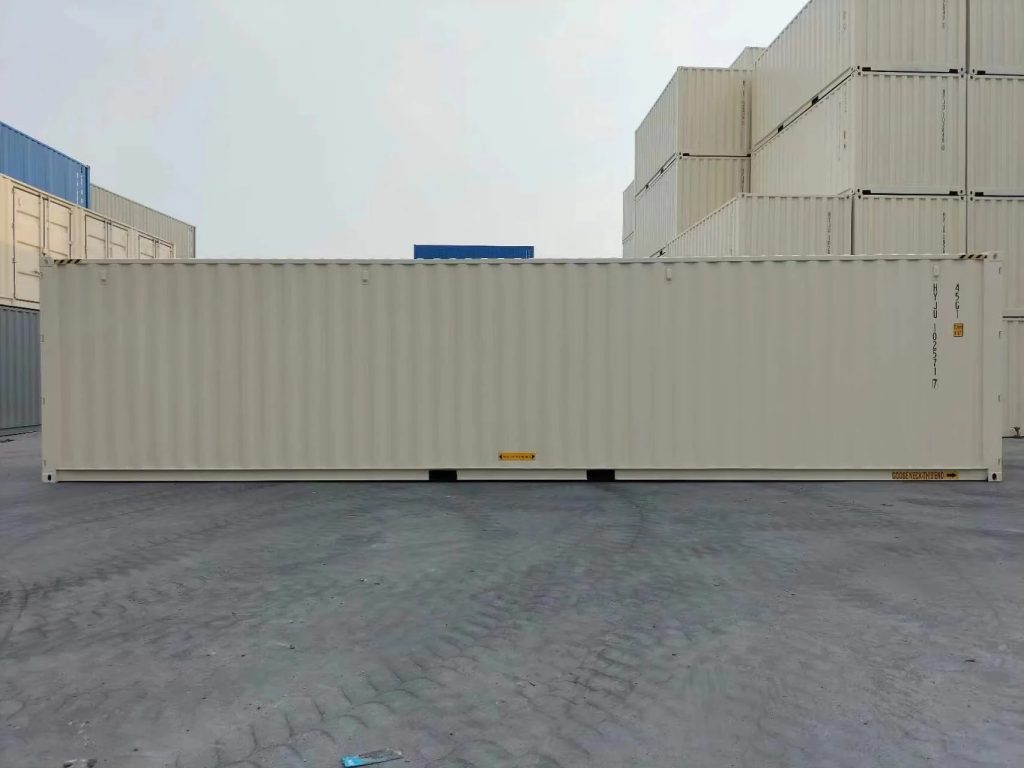25 Unexpected Facts About Shipping Container Marketplace

Exploring the Shipping Container Marketplace: Trends, Opportunities, and Future Insights
The shipping container marketplace has seen substantial growth recently, driven by increasing need throughout various industries, ingenious usages for containers, and the thriving worldwide trade sector. With evolving financial landscapes and an increasing focus on sustainability, understanding the dynamics of this marketplace is important for possible purchasers, investors, and stakeholders. This blog site post explores the various sections of the shipping container marketplace, its current patterns, chances, and typical FAQs.
What is a Shipping Container Marketplace?
A shipping container marketplace is a platform-- either physical or online-- where purchasers and sellers can participate in the trade of shipping containers. These containers are widely used for carrying goods across global trade paths, and their energy has actually encompassed other sectors such as construction, housing, and retail.
Introduction of the Shipping Container Market
The shipping container market is identified by numerous aspects, consisting of container types, rates, and applications. Below is a table that describes important data and functions of the worldwide shipping container market:
| Category | Information |
|---|---|
| Current Market Size | Around ₤ 9.13 billion (2022 ) |
| Projected Growth Rate | CAGR of 7.12% from 2023 to 2030 |
| Major Container Types | Requirement, Refrigerated, Open-top, Flat-rack |
| Main End Users | Logistics, Retail, Construction, Agriculture |
| Leading Regions | Asia-Pacific, North America, Europe |
Kinds Of Shipping Containers
Shipping containers can be found in numerous types, each designed for particular functions. Understanding these can help purchasers select the ideal container for their needs.
Common Types of Shipping Containers:
- Standard Containers: These are the most often used containers, typically determined at 20 and 40 feet in length. Ideal for basic shipping requirements.
- Refrigerated Containers (Reefers): Designed to bring temperature-sensitive items, such as disposable food products.
- Open-Top Containers: Ideal for carrying oversized cargo that can not fit through standard container doors.
- Flat-Rack Containers: Used for heavy equipment and materials that do not need full enclosure.
- High Cube Containers: Taller than standard containers, supplying extra vertical area for cargo.
- Tanks: Specifically designed to transport liquid goods safely.
Current Marketplace Trends
The shipping container marketplace is continually developing, affected by various factors such as technological improvements, supply chain modifications, and ecological considerations. Below are some existing trends shaping the marketplace:
- Increased Demand for Modular Construction: Shipping containers are acquiring appeal in the construction market due to their cost-effectiveness and sustainability. They are repurposed into homes, offices, and pop-up stores.
- Sustainability Focus: With international efforts towards reducing carbon footprints, lots of companies are adopting recycled shipping containers for various commercial purposes.
- E-commerce Growth: The rise in e-commerce activities has actually directly affected the shipping container need, as more products are transported worldwide to satisfy customer requirements.
- Technological Integration: Innovations such as IoT gadgets in shipping containers are enhancing tracking, security, and efficiency in logistics.
Opportunities in the Shipping Container Marketplace
The shipping container marketplace provides several opportunities for entrepreneurs, companies, and investors seeking to enter or broaden within the market. Here are some prospective locations of development and development:
- Innovative Container Designs: Creating specialized containers for specific niche markets can use a competitive benefit.
- Storage Solutions: Offering portable storage choices utilizing shipping containers, especially in urban locations where space is restricted.
- Occasion Spaces: Repurposing containers into special venues for events, celebrations, and exhibitions.
- Diverse Recycling Practices: Establishing a business concentrated on reconditioning and reselling used containers.
- Technology-Driven Services: Developing applications or platforms that utilize information and analytics to enhance container usage and routing.
Difficulties Facing the Shipping Container Marketplace
While the shipping container marketplace carries substantial opportunities, it is not without challenges. A few of the crucial issues consist of:
- Supply Chain Disruptions: Global crises such as pandemics can result in substantial hold-ups in container delivery and accessibility.
- Regulatory Hurdles: Complying with global shipping policies and requirements can be complicated and costly.
- Market Competition: The market has actually seen an influx of gamers, making it a highly competitive environment.
Frequently Asked Questions (FAQ)
1. What is the typical price of a shipping container?
The average cost of a used basic shipping container typically varies between ₤ 2,000 and ₤ 5,000, depending on the condition and type. COG Containers LTD can cost substantially more.
2. For how long do shipping containers last?
With correct maintenance, shipping containers can last 25 years or more. Nevertheless, their life-span can vary based upon usage and ecological conditions.
3. Are shipping containers easy to buy?
Yes, acquiring shipping containers can be uncomplicated. Buyers can connect with local merchants, online marketplaces, or specialized business dealing in container sales.
4. Can shipping containers be carried quickly?
Shipping containers are developed for transport via land, sea, and rail. They can quickly be moved utilizing trucks geared up with the required lifting devices.
5. What are the ecological advantages of using shipping containers?
Using recycled shipping containers can substantially lower waste, as they repurpose materials rather than using new resources. They likewise promote sustainable practices in construction and other industries.
The shipping container marketplace is a vibrant and broadening sector, using many potential customers for those ready to explore its potential. Given the unique advantages containers supply and the numerous patterns affecting their use, stakeholders ought to stay informed about the market characteristics. Whether you're a financier, a company owner, or a private looking to utilize containers, understanding this marketplace can assist in tactical choices and foster growth in many applications. As the world ends up being increasingly interconnected, the importance of shipping containers will just continue to rise, making this marketplace a focal point for future advancements.

